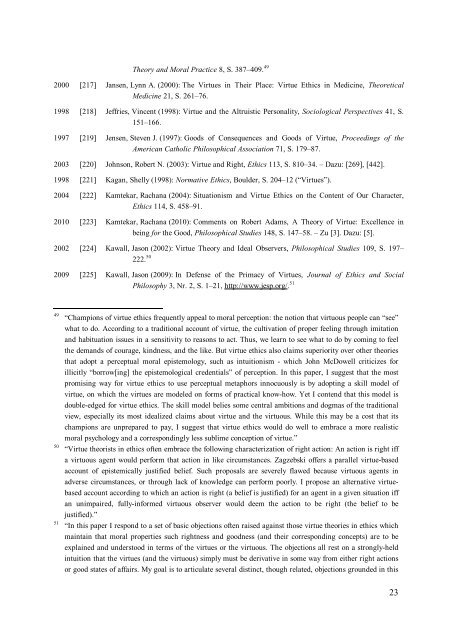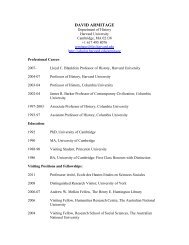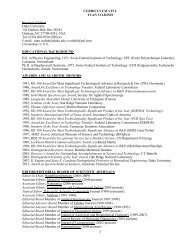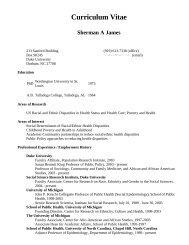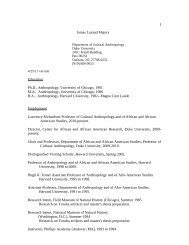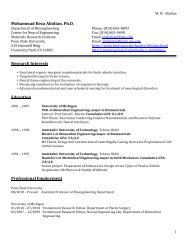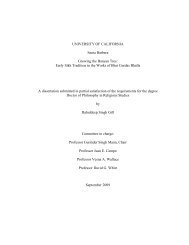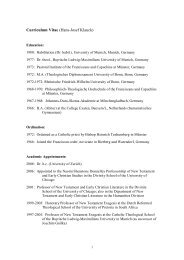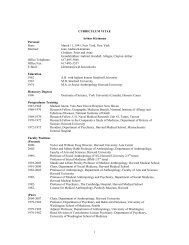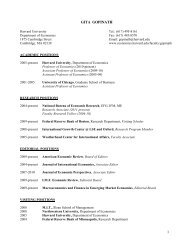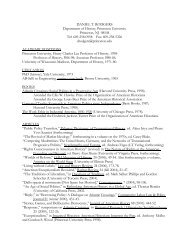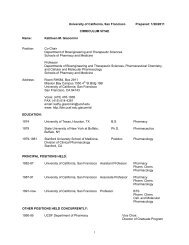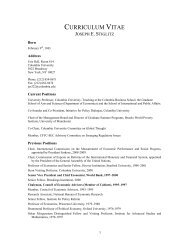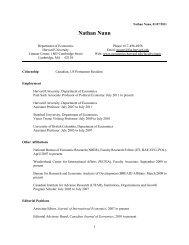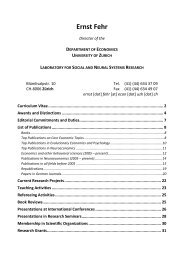Literatur zur Tugendethik Bibliography on Virtue ... - Academic Room
Literatur zur Tugendethik Bibliography on Virtue ... - Academic Room
Literatur zur Tugendethik Bibliography on Virtue ... - Academic Room
- No tags were found...
Create successful ePaper yourself
Turn your PDF publications into a flip-book with our unique Google optimized e-Paper software.
Theory and Moral Practice 8, S. 387–409. 492000 [217] Jansen, Lynn A. (2000): The <strong>Virtue</strong>s in Their Place: <strong>Virtue</strong> Ethics in Medicine, TheoreticalMedicine 21, S. 261–76.1998 [218] Jeffries, Vincent (1998): <strong>Virtue</strong> and the Altruistic Pers<strong>on</strong>ality, Sociological Perspectives 41, S.151–166.1997 [219] Jensen, Steven J. (1997): Goods of C<strong>on</strong>sequences and Goods of <strong>Virtue</strong>, Proceedings of theAmerican Catholic Philosophical Associati<strong>on</strong> 71, S. 179–87.2003 [220] Johns<strong>on</strong>, Robert N. (2003): <strong>Virtue</strong> and Right, Ethics 113, S. 810–34. – Dazu: [269], [442].1998 [221] Kagan, Shelly (1998): Normative Ethics, Boulder, S. 204–12 (“<strong>Virtue</strong>s”).2004 [222] Kamtekar, Rachana (2004): Situati<strong>on</strong>ism and <strong>Virtue</strong> Ethics <strong>on</strong> the C<strong>on</strong>tent of Our Character,Ethics 114, S. 458–91.2010 [223] Kamtekar, Rachana (2010): Comments <strong>on</strong> Robert Adams, A Theory of <strong>Virtue</strong>: Excellence inbeing for the Good, Philosophical Studies 148, S. 147–58. – Zu [3]. Dazu: [5].2002 [224] Kawall, Jas<strong>on</strong> (2002): <strong>Virtue</strong> Theory and Ideal Observers, Philosophical Studies 109, S. 197–222. 502009 [225] Kawall, Jas<strong>on</strong> (2009): In Defense of the Primacy of <strong>Virtue</strong>s, Journal of Ethics and SocialPhilosophy 3, Nr. 2, S. 1–21, http://www.jesp.org/. 51495051“Champi<strong>on</strong>s of virtue ethics frequently appeal to moral percepti<strong>on</strong>: the noti<strong>on</strong> that virtuous people can “see”what to do. According to a traditi<strong>on</strong>al account of virtue, the cultivati<strong>on</strong> of proper feeling through imitati<strong>on</strong>and habituati<strong>on</strong> issues in a sensitivity to reas<strong>on</strong>s to act. Thus, we learn to see what to do by coming to feelthe demands of courage, kindness, and the like. But virtue ethics also claims superiority over other theoriesthat adopt a perceptual moral epistemology, such as intuiti<strong>on</strong>ism - which John McDowell criticizes forillicitly “borrow[ing] the epistemological credentials” of percepti<strong>on</strong>. In this paper, I suggest that the mostpromising way for virtue ethics to use perceptual metaphors innocuously is by adopting a skill model ofvirtue, <strong>on</strong> which the virtues are modeled <strong>on</strong> forms of practical know-how. Yet I c<strong>on</strong>tend that this model isdouble-edged for virtue ethics. The skill model belies some central ambiti<strong>on</strong>s and dogmas of the traditi<strong>on</strong>alview, especially its most idealized claims about virtue and the virtuous. While this may be a cost that itschampi<strong>on</strong>s are unprepared to pay, I suggest that virtue ethics would do well to embrace a more realisticmoral psychology and a corresp<strong>on</strong>dingly less sublime c<strong>on</strong>cepti<strong>on</strong> of virtue.”“<strong>Virtue</strong> theorists in ethics often embrace the following characterizati<strong>on</strong> of right acti<strong>on</strong>: An acti<strong>on</strong> is right iffa virtuous agent would perform that acti<strong>on</strong> in like circumstances. Zagzebski offers a parallel virtue-basedaccount of epistemically justified belief. Such proposals are severely flawed because virtuous agents inadverse circumstances, or through lack of knowledge can perform poorly. I propose an alternative virtuebasedaccount according to which an acti<strong>on</strong> is right (a belief is justified) for an agent in a given situati<strong>on</strong> iffan unimpaired, fully-informed virtuous observer would deem the acti<strong>on</strong> to be right (the belief to bejustified).”“In this paper I resp<strong>on</strong>d to a set of basic objecti<strong>on</strong>s often raised against those virtue theories in ethics whichmaintain that moral properties such rightness and goodness (and their corresp<strong>on</strong>ding c<strong>on</strong>cepts) are to beexplained and understood in terms of the virtues or the virtuous. The objecti<strong>on</strong>s all rest <strong>on</strong> a str<strong>on</strong>gly-heldintuiti<strong>on</strong> that the virtues (and the virtuous) simply must be derivative in some way from either right acti<strong>on</strong>sor good states of affairs. My goal is to articulate several distinct, though related, objecti<strong>on</strong>s grounded in this23


